When you’re stumped, generating ideas for stories may turn out to be surprisingly easy. Try these 10 fun approaches (and find prompts from the ‘Craft Challenge’ writing group on Now Novel):
How to generate new story ideas:
Try one of these methods to jog creative ideas:
- Pick words blind and connect
Try to relate randomly chosen words and use them in the same short piece – you may find it holds promise for a longer piece.
- Use structured prompts
Use a step-by-step prompted story outlining process that considers important elements of an engrossing read.
- Word-smash headlines
Fill in the blanks or continue the narrative line of news headlines – or why not smash two or more together?
- Start an argument
Argue with an idea, another book, a fact of history, to find a contrary line of departure.
- Use visual cues
Use expressive images as the starting point for a story summary, character sketch or scenario idea.
- Try using mind maps
Create a word cloud of thoughts on a theme, topic, place, era.
- Draw story ideas from quotes
Read quotes (a quote compendium is a handy inspiration resource). Build a character around an idea, a line, a phrase.
- Join a writing group
Join a group where members or mods set creative writing prompts and give one another feedback.
- Try a freewriting sprint
Join a writing sprint and try writing on a chosen theme, situation, mood or image without stopping for a fixed time.
- Explore myths and tropes
Explore the treasures of classic myths from various parts of the world or examine tropes and ways you can subvert and invert them.
Let’s the above ideas on ways to generate story ideas further:
Pick words blind and connect
This is a simple way to find unexpected ideas.
- Take a book of fiction. (We took Alice Munro’s Selected Stories.)
- Open the book to any page with your eyes closed.
- Circle around and land on a word with your finger and write it down, until you have 5 to 7 words.
- If the word is bland or nondescript (e.g. ‘and’) repeat the step until you have one that feels worth writing down.
We found the following words:
- Former (p. 165)
- Morning (p. 281)
- Room (p. 312)
- Performer (p. 23)
- Present (p. 167)
Next, unleash your imagination and try to generate as many two-line story idea summaries as you can, incorporating the words you found. For example:
- Former performer finds a mysterious present in their room at an upmarket London hotel one morning… and it may be from a creepy stalker
- A girl stumbles across a room in her aunt’s home one morning where she finds the diary of a formerly famous performer who used to give piano lessons in the building a century before
- A present makes a performer close to giving up on their aspirations reconsider, the morning of a big concert, and they give an unforgettable performance that night that sets off the best part of their career
Each of these ideas came together out of only the 5 words above and a little imagination.
The first could be a thriller, the second, a historical novel, the third, a bildungsroman (a novel about an artist’s growth).
What can you come up with using this method? Share a result you don’t plan to use in the comments – someone else may find it inspiring.
Use structured prompts
It’s tricky to find ideas out of a single writing prompt. Structured prompts that guide you through a series of connected questions help you to continue the thought process you begin.
In the Central Idea section of Now Novel, for example, you start by thinking about genres and subjects that interest you and gradually finesse and summarize a story idea.
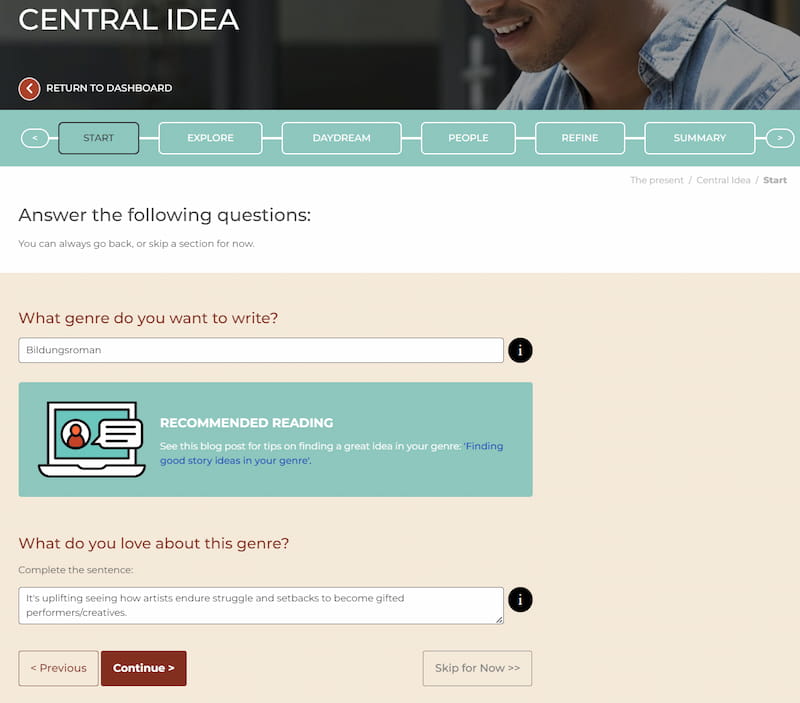
The benefit of using a structured outlining process is you’re guided every step of the way (you can also email us your idea at the end for personal, considered feedback and suggestions).
Word-smash headlines
News headlines are equally useful for generating ideas for stories.
A single headline may give you ideas. For example, if we Google ‘heartbreak’ and go to the ‘news’ tab:
How to cope with heartbreak during the holidays
We get the above, fairly generic headline courtesy of Mashable from December 2022.
This in itself could generate a story idea. For example:
- ‘…when you’re a mascot performer in the world’s biggest romantic holiday spectacle’
- ‘… when it’s Christmas/Hannukah/Ashura and your pushy aunt’s coming to town’
These may be silly examples, but headlines are great fodder for inspiration. Try combining multiple headlines. For example:
- ‘How to cope with heartbreak during the holidays’ and ‘The ten most bizarre & shameless items confiscated by airport security last year’ (The Sun)
- ‘How to cope with heartbreak during the holidays’ and ‘Couple spent 800 hours and £35,000 converting a yellow American school bus into a luxury home’ (Daily Mail)
The more dubious the source, the more outlandish and wild the headlines you’ll find for generating story ideas, of course.

GET YOUR FREE GUIDE TO SCENE STRUCTURE
Read a guide to writing scenes with purpose that move your story forward.
Learn moreStart an argument
Being contrary is a useful way to find story ideas. You could, for example, take a figurative statement, a metaphor, and say ‘what if we took this literally?’
Colson Whitehead did exactly this in imagining the ‘underground railroad’ (the network of safe-houses and escape routes formed to help former slaves escape in 19th Century America) as an actual railroad.
There are all kinds of ways you can generate ideas for a story by starting a quarrel with either myth or fact. For example:
- What if the atom bomb was never discovered?
- What if Ceres (in Greek mythology) never got her daughter back from Hades’ underworld?
‘Thinking otherwise’ is useful to writers, in general. As playwright Tom Stoppard said of his writing process:
There is often no single, clear statement in my plays. What there is, is a series of conflicting statements made by conflicting characters, and they tend to play a sort of infinite leap-frog. You know, an argument, a refutation, then a rebuttal of the refutation, then a counter-rebuttal…’
Tom Stoppard in Tom Stoppard in Conversation (1994), p. 58
Arguing with yourself (or other writers, or history, or facts) is one of the fun perks of writing stories.
Use visual cues
Images often generate story ideas. Images hold an ambiguity that lets you imagine, lean in, create your own reading (the way the best books do).
Take an image-based platform (Pinterest, Pexels) and browse images. Stop on one that draws your attention.
Try to brainstorm a few two-line story ideas inspired by the image. For example, take this image from Canva’s stock library:

We found this image, believe it or not, by searching ‘weird birthday’. The description read ‘A mature man, unshaven, with a bouquet of roses for his date.’
Look at the image and try to imagine a related story:
- Jen is intently not celebrating her birthday when a random man shows up at her door with a bouquet of roses for one ‘Sarah’, insisting she is her
- A woman’s birthday goes horribly wrong when her mother tries to set her up with a former classmate who she has a troubled history with
There are many directions the same image could take you, or search for another if inspiration doesn’t strike.
Alternatively, use AI tools for visual story inspiration. Often the goofy, ‘inaccurate’ responses are the interesting ones. We made Sudowrite describe the word ‘syntax’, then had Dalle 2 illustrate the description, for example:
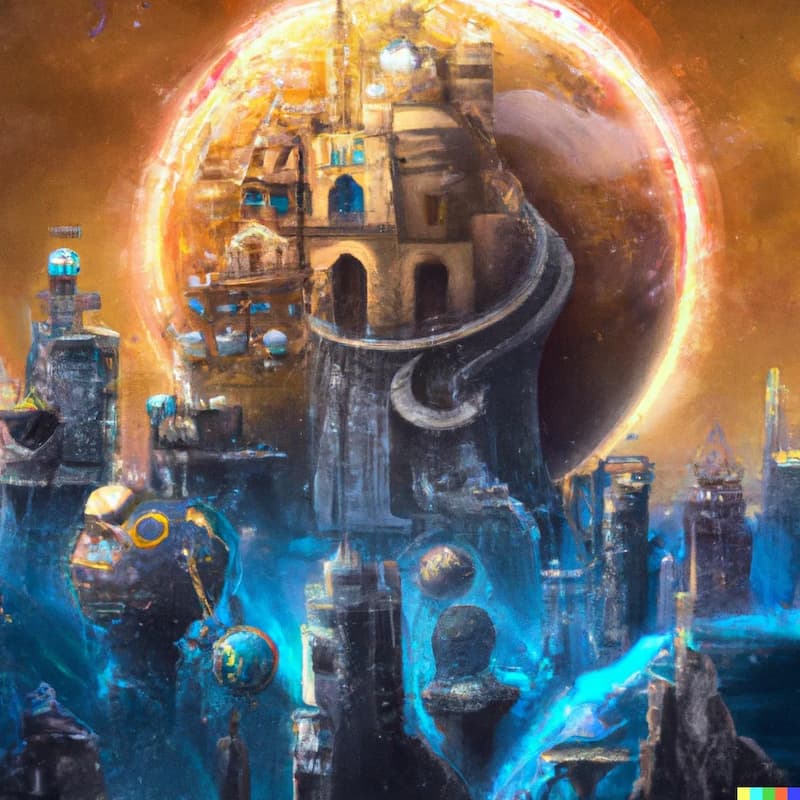
Per Maria from Metastellar’s suggestion in the comments, another useful AI tool is ChatGPT, a trained chatbot by OpenAI that interacts in a conversational way. For example, we asked ChatGPT, ‘Write five writing prompts involving letters of the alphabet as plot elements’. The output:
AI-generated writing prompts
- A detective must solve a series of murders where each victim’s first name begins with a different letter of the alphabet.
- A group of friends discover a mysterious box that contains 26 keys, each labeled with a different letter of the alphabet. They must use the keys to unlock a hidden treasure before it falls into the wrong hands.
- A young girl discovers she has the power to control the alphabet, and must use her powers to stop an evil organization from manipulating the English language for their own gain.
- A man receives a series of letters in the mail, each one signed with a different letter of the alphabet. He soon realizes the letters are clues leading him to the truth about his father’s murder.
- A group of students must use their knowledge of the alphabet to decipher an ancient code and uncover the secret of a long-lost civilization.
You’ll notice that just like human-generated story ideas, some of the above are better than others.
Try using mind maps
Creating a mind-map is another practical way to expand on initial thoughts and associations and generate fiction ideas.
Start by writing a theme or subject in the center of a page.
Say, for example, the saying ‘the road to hell is paved with good intentions’ (meaning that noble actions, rather than noble intentions, achieve good).
Draw story ideas from quotes
Quotes are great sources for generating ideas for stories. For example, go to Brainyquote.com and enter a simple, abstract noun such as ‘love’.
One of the first quotes is this by the author of The Little Prince, Antoine de Saint-Exupery:
Tell me who admires and loves you, and I will tell you who you are.
An example idea this could generate: Five great loves of a man from different decades of his life describe him. In the final chapter, the reader meets the man himself.
Use quotes like this to play, explore, and invent.
Join a writing group
Writing groups – the good ones – are a constructive space to meet like-minded (and refreshingly different-minded) writers. How does a writing group help you generate story ideas?
As an example, in the member-created ‘Craft Challenge’ group on this site, members’ prompts for one another inspired a member to start writing a detective series in 2022, the first draft of which they completed during NaNoWriMo.
Ed’s note: As a lit undergrad student in the 2010s, I attended a summer school workshop in fiction and poetry writing, and this lead to two years attending a monthly meet-up of poetry writers where we responded to prompts set by the author and poet who had run the course. Each week, a member of the group would invariably say that writing prompts helped them explore and generate ideas they never would have thought of otherwise.
Why the above anecdote? The accountability of meeting with a group plus the guided exercises kept everyone creating and testing out parts of their creative minds they didn’t always exercise.
Writing prompts from the Craft Challenge group
Here are a few writing prompts (with thanks to Now Novel members who contributed them) from the Craft Challenge writing group:
- Write a short story called The Cat and Robot.
- Write a short story or poem related to a song that kept you company in 2022.
- Write a short story, poem or scene with one of the following titles (you can erase the title later and give it your own, or leave the title out): Nobody loses all the time [this is a line from an e. e. cummings poem]; The day the Prime Minister lost his toupee; The bizarre letter; An unwanted inheritance.
Try a freewriting sprint
Freewriting is another method for generating story ideas. The concept is simple: Write on a topic, or to a prompt, for a fixed duration of time, then stop.
Writing sprints (like the daily sprints that are part of Now Novel’s group coaching program) are accountability tools you can use for whatever you like, be it story planning, drafting, freewriting. The main purpose is to keep showing up for your writing and generating ideas you can finesse later.
Try joining a sprint and using it to free-write, play and explore.
Explore myths and tropes
Myths from around the world and well-known fiction tropes are also great sources for generating story ideas.
You might, for example, take a myth like the myth of Sisyphus (in which a king is punished for cheating death twice by having to roll a boulder up a hill only for it to roll down again for eternity) and use it as fodder for a story:
- A man in a near-death experience receives a difficult choice from a mysterious figure
- A construction company owner has a disastrous project where the previous week’s work is undone mysteriously when he returns to site on Monday each week
Generate interesting ideas by looking at tropes, such as these romance tropes (a trope is an idea that has been used so much so as to become recognized or cliched of a genre, for example ‘enemies to lovers’ in romance). How can you make a trope new, subvert it, invert it (e.g. ‘lovers to enemies’ instead of ‘enemies to lovers’) or otherwise make something overused your own?
Need help creating ideas for stories? Start with a structured outline and develop your idea with help and feedback.

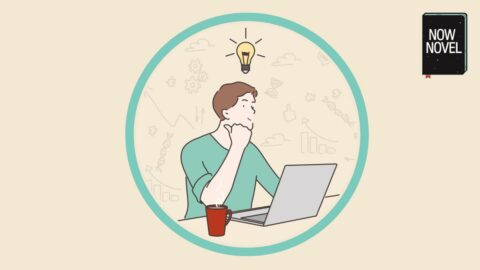
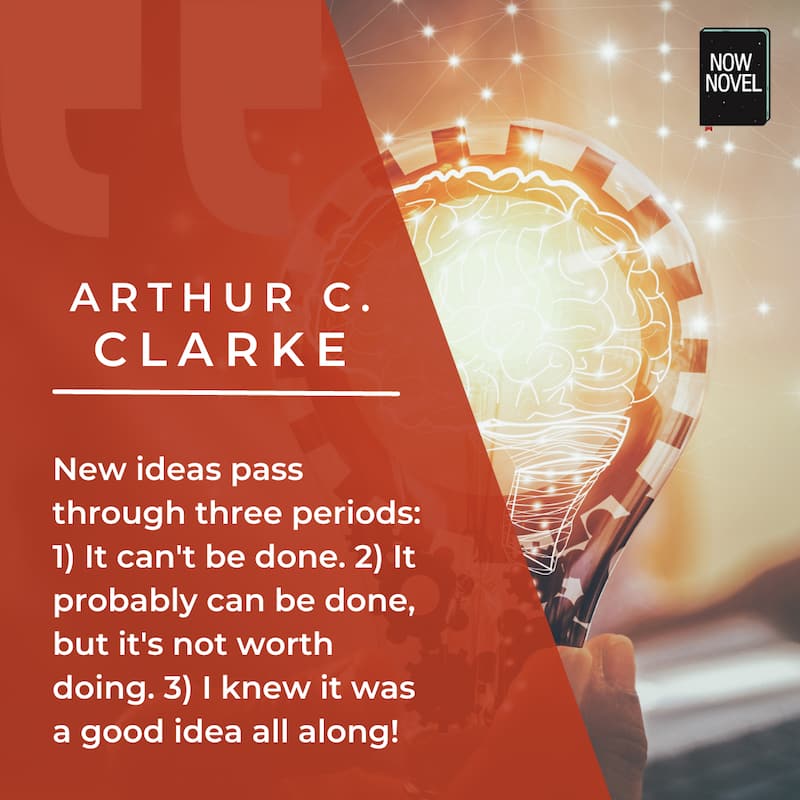
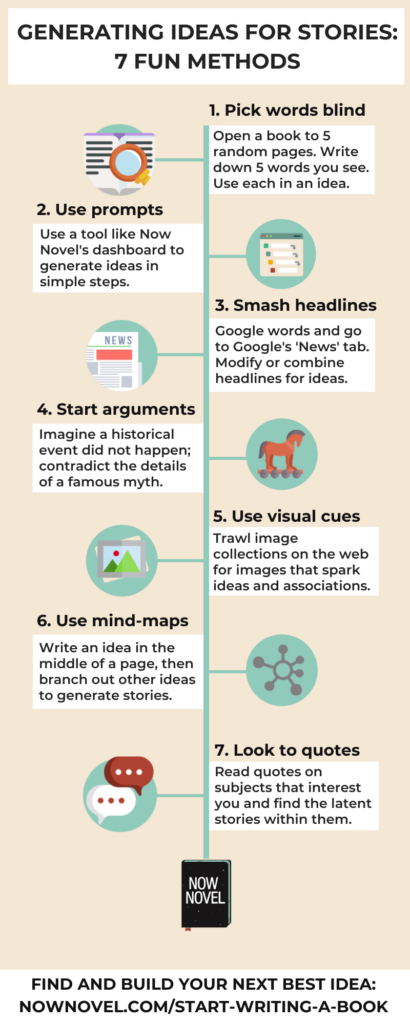
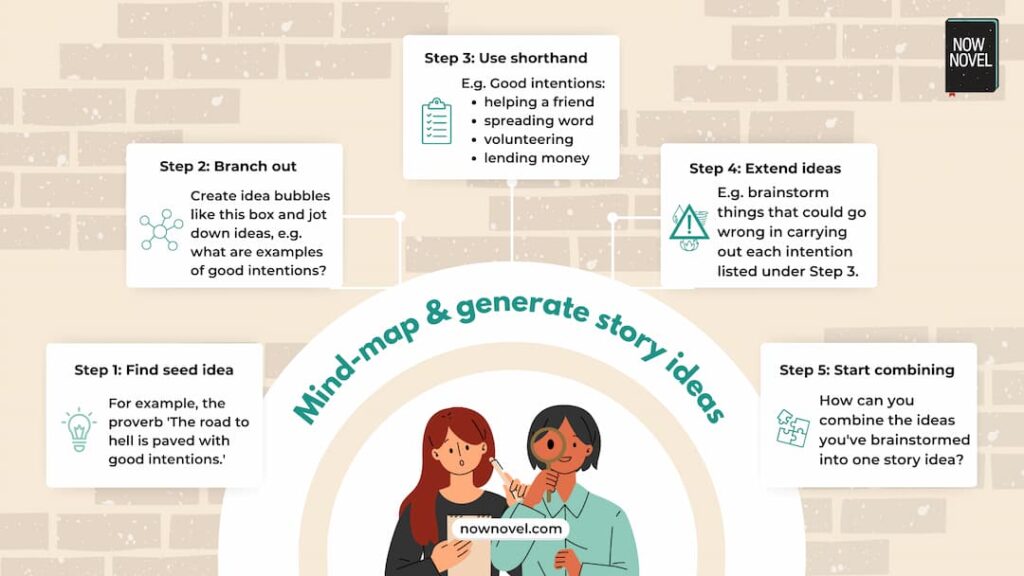
9 replies on “Generating ideas for stories: 10 fun ways (plus prompts)”
Love this! It all makes me want to retire so I can devote all my time to this stuff. 🙂
Thanks, Jess 🙂 Give everyone extra-long assignments then pretend to be marking Very Important Papers 🙂.
Not to keen on the AI stuff, however the rest of the article has gotten my creative juices rumbling.
Superb article.
Hi Crawford, I understand that, these new tools aren’t for everyone. I’m glad you found this article helpful – thank you for reading our blog and taking the time to share feedback.
I love these ideas. Definitely going to try them.
Thank you, V.M. I hope the results inspire you.
You left out the biggest AI tool of all — ChatGPT. 🙂
Good suggestion/addition, Maria. Will add it in, thank you for sharing your feedback 🙂
Thanks again, Maria, I’ve updated the post.